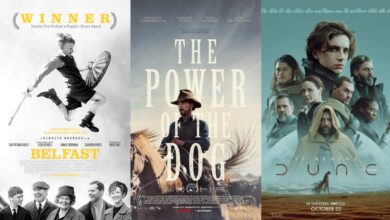Megalopolis Review: A Work Full of Ideas But Not Always Coherent In Their Execution | Cannes 2024
Cast: Adam Driver, Nathalie Emmanuel, Giancarlo Esposito, Shia LaBeouf, Jon Voight, Laurence Fishburne, Aubrey Plaza, Chloe Fineman, Talia Shire, Jason Schwartzman, Kathryn Hunter, Dustin Hoffman
Director: Francis Ford Coppola
Where we Watched: At the Cannes Film Festival
Filmhype.com Ratings: 2/5 (two stars)
Megalopolis or you will love it, or you will hate it intensely, this is a necessary premise to approach what Francis Ford Coppola, at 85 Springs, offered at the Official Competition of the Croisette this year, finally it is time to say, given that this film river of two and a half hours began to be developed 45 years ago. Titanic and at the same time ridiculous, very current, and at the same time linked to the topoi of his most typical cinematography, Megalopolis is a very strange film, experimental in the most absolute sense, yet capable of showing us a self-deprecating and irreverent side of Coppola, in addition to his endless love for cinema of the great masters. I was thinking above all of the films and of Verhoeven’s cinema in general because I often found myself wondering, for age reasons: if I had seen him in theaters at the time, his scandalous films, I would have fallen in with those who didn’t understand what was behind its bad taste, its excess?
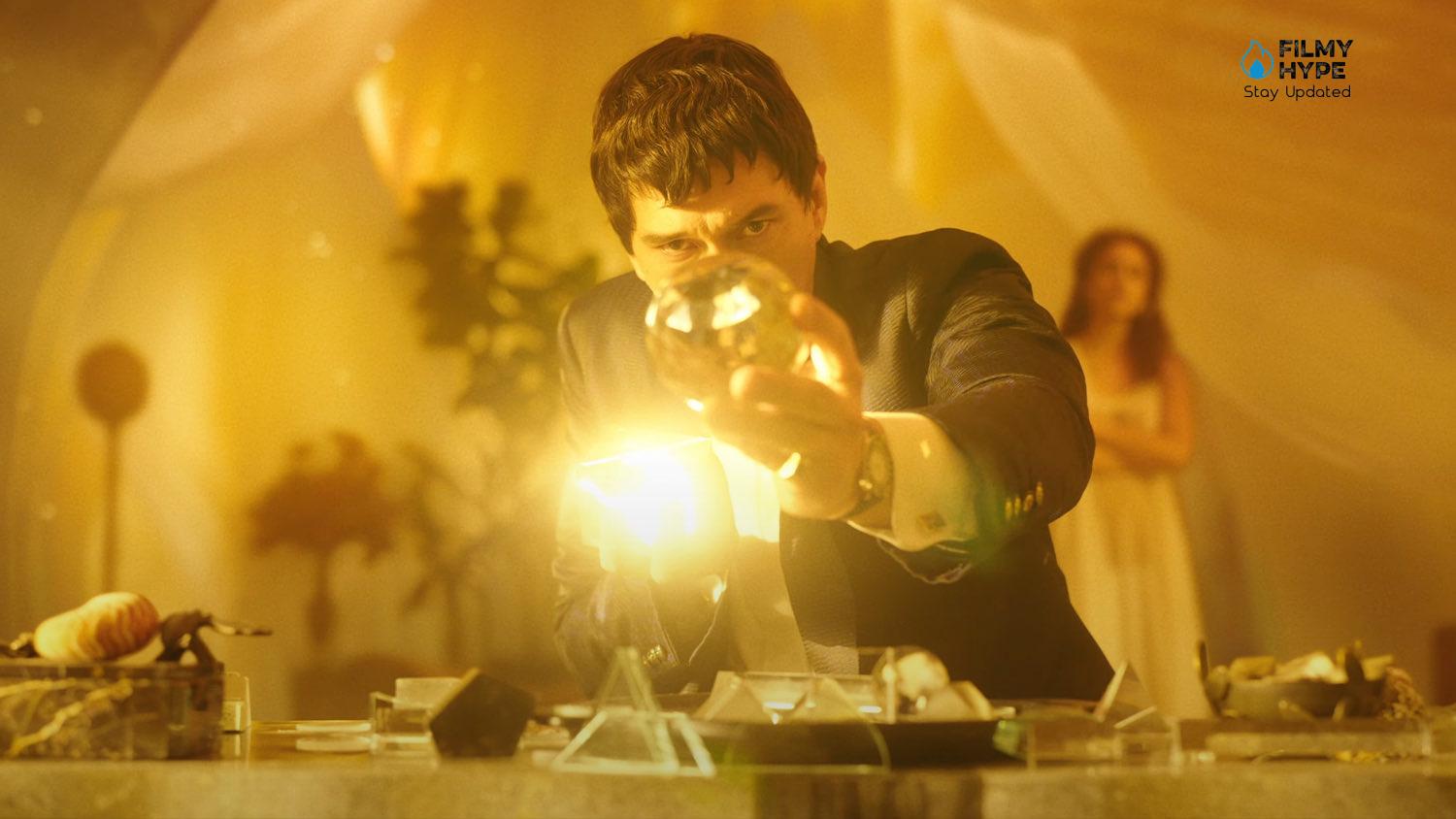
Or perhaps it was Aubrey Plaza who during intercourse arches her back backwards until she almost touches her ankles who inspired this reflection in me? It’s hard not to think about it when Megalopolis has a scene more or less consciously photocopied from Black Book, with a male erection visible under the sheets that culminates in an unexpected type of violence. Coppola incredibly manages to surpass the Dutch director in absurdity and excess: it’s an achievement, in his way. The impression, however, is that in 30 years the Cannes Festival accredited members who survived old age, AI and the publishing crisis will talk about that time when in a single day they saw the beautiful Furiosa and the worst film ever by Coppola. This self-assigned, noble but also self-centered mission of Cesar seems a direct reflection of Francis Ford Coppola’s dogged determination to make the film at any cost so that the tale becomes almost an allegory of the pursuit of a dream.
Megalopolis Review: The Story Plot
Megalopolis is difficult to define exactly as regards its nature and categorization, that of fantasy uchronia is probably the most suitable, even if Francis Ford Coppola puts in a lot of political satire, science fiction, dystopia, neo-noir, melodrama, and also thriller, guiding us into a New York that seems to have emerged from a cross between Fritz Lang, German Expressionism, Douglas Trumbull’s Los Angeles, the Big Apple imagined by Chandler, deconstructivism and of course ancient Rome. Yes, because this America is in every way hybridly crossed with the Roman Empire, the one that was beginning to head towards collapse, the end, at least this is what its inhabitants feel. Mayor Frank Cicero (Giancarlo Esposito) has to deal with chaos, an economic crisis and a significant decline in popularity. His urban plan has as its main opponent Cesare Catilina (Adam Driver), a scientific genius and Nobel Prize winner who invented Megalon, a revolutionary substance with incredible properties, with which he would like to offer citizens a dream city.
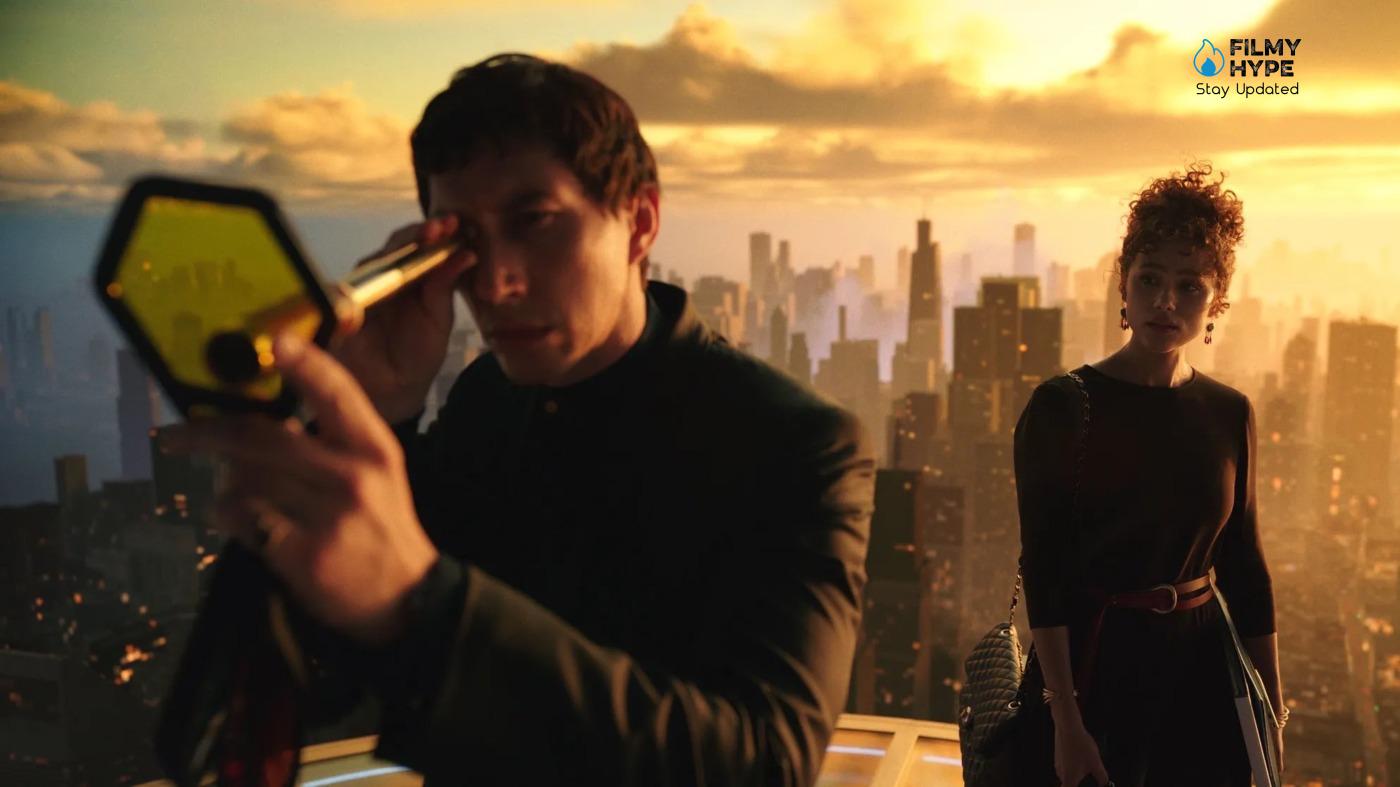
Cicero, as well as his followers, don’t want to know, only his daughter Julia (Nathalie Emanuel) seems to be confident in this strange visionary, as charismatic as he is haunted by a painful past and dangerous vices. However, a dangerous fauna moves around them, formed by the greedy journalist Wow Platinum (Aubrey Plaza) and above all the vicious and poisonous Clodius Plucher (Shia LaBeouf), son of the tycoon Hamilton Crassus (Jon Voight). Catalina has only her trusty driver Fundi (Laurence Fishburne) on her side, as she tries not to lose sight of the objective, not to be strangled by her vision, and at the same time not to become victims of conspiracies and politics, which always finds the space to do his worst. In the end, for Catiline, everything becomes vanity and pride, hope and disappointment, while friends and enemies get confused, and overlap, everything loses and acquires meaning.
Megalopolis arrives at Cannes 2024 full of controversy, inherent to the difficulty of finding a distributor for Francis Ford Coppola, to its excessive length, to the question of whether the great master, whether the director who gave us the Godfather trilogy, Apocalypse Now, Rusty the Savage, is still capable of sewing something authentic on the big screen, or whether he has remained a victim of his insatiable ambition. The answer is, so to speak, interlocutory, double, because Megalopolis can be defined as both a fiasco and shipwreck, and his most audacious, most ironic, most visionary film. It is certainly a coherent film, a film full of ideas and souls, which does not leave you indifferent.
Megalopolis Review and Analysis
Megalopolis contains everything that Coppola has given us and narrated in more than sixty years of their career, there is the family tragedy, there is Homer and Shakespeare, their archetypes that are reinvented in the form of tragedy, a narrative microcosm that rises to symbol of the social and semantic macrostructure of a country, America, which Coppola sees on the brink of the abyss. Adam Driver moves like a consummate showman, his Catilina, his epic among these great patrician families of magnates and corruptors, is a mix between a Rockefeller and an Elon Musk, between a Howard Hughes and a Zuckerberg. Something that often makes one uncomfortable, because for better or worse there is the sensation of praise of the individual over the mass, also taking to extremes what Nietzsche has always seen as a determining factor in human history. Games and corruption, nepotism and misery, Megalopolis in Coppola’s hands becomes an extreme theorization of what cinema can be, of the refusal of logic, of linearity that extinguishes the flame of a narrative in which comedy, tragedy, and parody often go arm in arm.
Americans believe they are modern Romans, Coppola believes it and at the same time makes fun of all this, while LaBeouf proves once again that he has a unique talent, Plaza is a thrilling femme fatale and Esposito becomes the symbol of moral ambiguity, the same one that dominates every character. America gives in to easy-to-use populism, to clichés, Coppola winks at Chaplin and his Hitler, but the references to Trump, to his subversive and crazy course, to mediocrity as the primary means of power, are continuous. He loves and at the same time despises the creatures that he makes move, this New York of miserable people that no one, not even Catiline, ultimately cares about. Creation and creator, time and space, Coppola talks about himself and his cinema, about cinema in general, whether there really is a limit, and whether the relationship with the public is really that important. Megalopolis moves on multiple tracks and levels, it follows that the staging often goes astray, loses the key to the problem, and dissimulates. But this is also part of the plan.
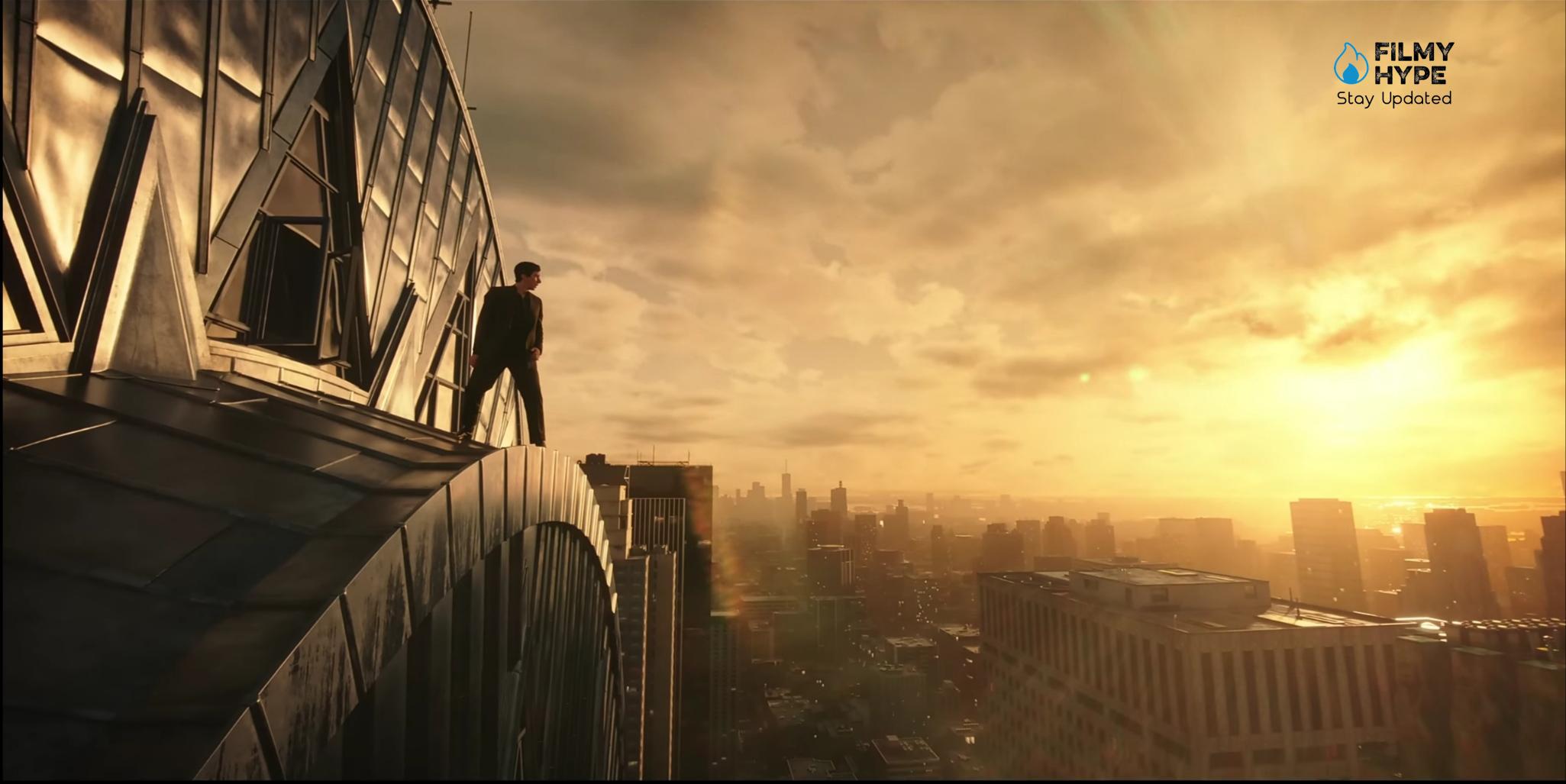
An excessive film, often unnecessarily baroque, a metaphor for history and the men who make it, Megalopolis is however crossed by irreverent humor, with which Coppola places himself and the myths he has created, his egocentrism and inability to stop for a moment first. He is Catilina and the film itself, he enters and exits the fourth wall, he even leaves the cinema and becomes a theater for the public (it’s not a cliché, it happened like this), he is a jester who laughs at everything and therefore at nothing. Does the American dream still exist? Is there a tomorrow for us? For the cinema? Francis Ford Coppola seemed for a long time to be an easy director to understand, but we had never understood him, he knows it, he tells us, and he explains it to us while he talks to us about an imagined and utopian future, about a civilization that tries to be more right for everyone. Stop, stop time, and fixate on the moment, tomorrow does not exist, only the dream of tomorrow exists, the intention exists more than the result, and that is all that is enough. A disastrous film, a perfect film.
After all, this is Coppola’s dream, a huge allegory of an artist who already knows she has created something immortal but who desperately wishes she could stop time. Overcoming her mortality with a magical material, which improves and heals everything: the megalon is cinema, and Cesar is Francis. At least what inspires the creative genius and gives the artist his powers is love, even if it is a little old-fashioned. Being Coppola Coppola – a great master, a visionary director, someone who dared to take the uncomfortable path and be understood only after decades – there is some good if you want to find it. For intellectual honesty, I’m going to list the little bit of Megalopolis that makes a positive impression. Starting from the directing style. Coppola is 85 years old but immediately adopted a contemporary style, including video clips, memes, and some very tacky advertisements for men’s perfumes. Not an aesthetic that I appreciate, but it certainly cannot be said that it lives in the past, that it hasn’t tried to renew itself.
Megalopolis does not lack directorial flair, but there are so many slips that they erase what is good. Even the performers are pushed to perform excessively, over the top, and caricatured. Adam Driver does what he can but he has to hold alone a speech that he would like to be inspiring and touching, as if a revived Kennedy returned to speak to America about Trump: it hurts his heart to see him try so hard. Aubrey Plaza seems to be part character and part parody on SNL. Nathalie Emmanuel is transparent, certainly not helped by a rarely inconsistent character: Dante’s Beatrice as an angelic woman had more cock. The only one really on the ball, indeed, so comfortable and natural with her that she really deserves an award (and perhaps Greta Gerwig’s jury will thus save the day) is Shia LaBeouf. He is crazy and is perhaps the only one worth watching movies for.
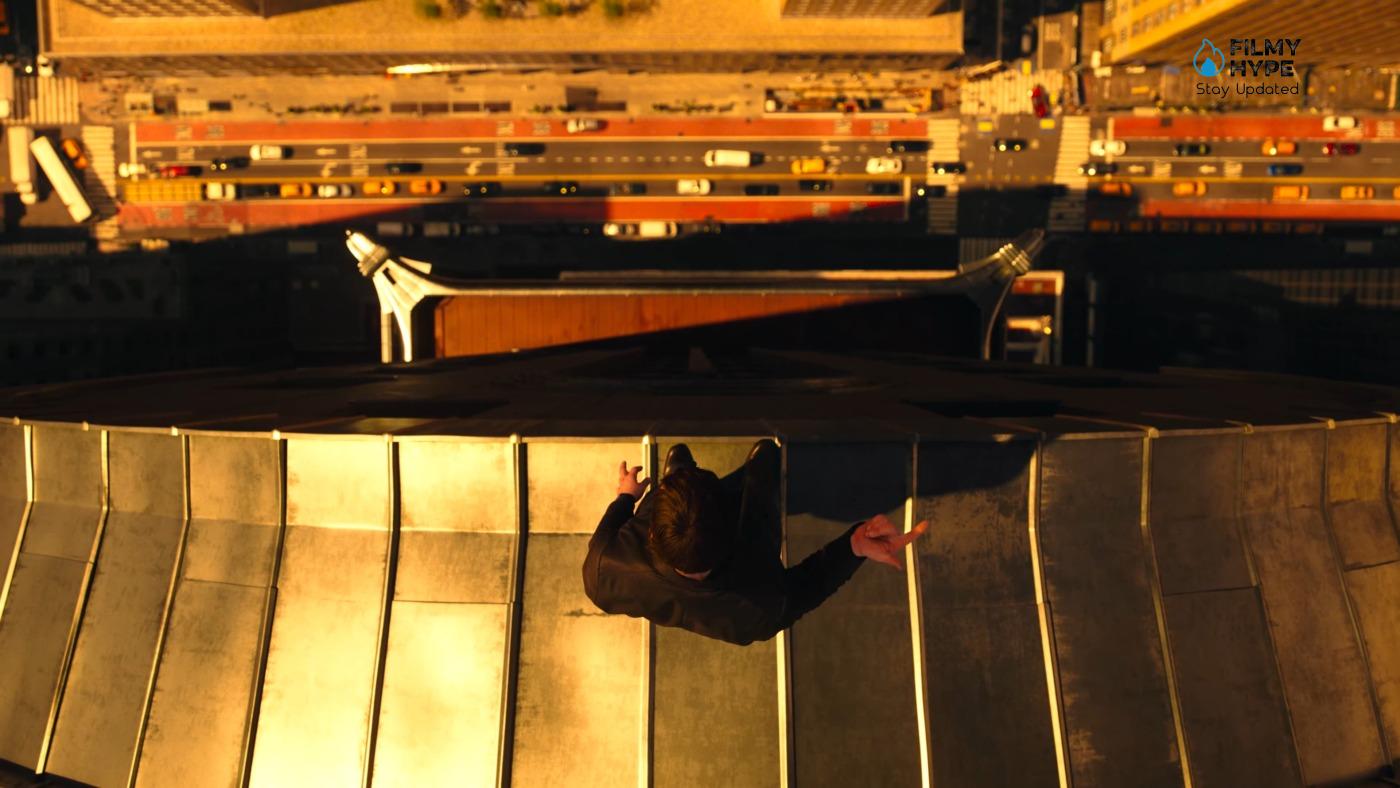
While others flounder, LaBeous wallows in excess and makes it natural, vibrant, and magnetic. It’s as if the inherent madness of the story was natural to him, he even manages to pass off something ridiculous and weak from an operetta tragedy. There is nothing left to save. There is a lot to fail, a lot. Starting from a visionary film incapable of bringing to life a credible, coherent, non-sketched futuristic and utopian vision. The visuals of the utopian city that Cesar wants to build seem like the meme of “what would the world be like if…”, in several passages one gets the impression that the set designers had to prepare a futuristic and American vision of the Roman empire in less than half an hour. As regards the special effects, let’s also say that it is clear that the VFX professional sector was at loggerheads with the director and production. It’s not just an aesthetic problem – even if some passages are really ugly and fake – it’s a mortal blow for a visionary film that on a visual and aesthetic level is completely devoid of vision.
At least you will probably be spared the mid-screening incursion of a man who stands with his back to the screen armed with a pole and microphone and interviews Adam Driver. It should be a great coup de theatre, but it smacks of a bit of a gimmick, a bit of a joke. Coppola’s is a very sincere, even painful gesture (the film is dedicated to his wife Eleanor, who died shortly before its presentation at Cannes), who in just over two hours stages all his thematic and visual obsessions, singing praise to the artist’s profession as an expression of absolute freedom. Freedom in this case is delirious, even inconsistent at times, with a fluctuating aesthetic apparatus that contributes to the “cursed” aura of a work accompanied from the beginning by a project statute destined, in one way or another, to fail. A failure with a certain nobility, however, because in a production ecosystem like today, where projects of this caliber are practically no longer made for the cinema as the majors chase easy profits from franchises.

It is certainly cathartic that Coppola, as has already happened for Terry Gilliam and his Don Quixote, managed to bring home exactly what he had in mind. And if this were to be the last piece of his filmography (especially for age reasons, because the will certainly isn’t lacking), there is an odd coherence in the fact that, like Coppola’s filmography, it is a perversely hypnotic and frustrating time of ups and downs. The film screened for critics at Cannes in an IMAX theater, featuring a brief live interlude, which we won’t reveal, but which left those in attendance wondering whether the element will be part of regular commercial screenings. Perhaps this is a little too original, but it suggests that Coppola sees Megalopolis as an event film. Considering the rather small audience that Megalopolis will speak to, perhaps that’s not realistic. But if this is to be the swansong of the illustrious eighty-five-year-old director, at least he will have dramatically ended his career having taken the risk.
Megalopolis Review: The Last Words
It is difficult to completely dispel the impression that Megalopolis, rather than the prophecy of a visionary, is the proverbial “delirium of a mad old man”. Unfortunately, Coppola is not animated by the artistic madness that we would have loved to see him bring to the screen, but rather by the confused wisdom of someone who thinks he has the meaning of life, politics, love, and all the Big Questions in his pocket and deep down he only has some banalities to say. The American press has been trying to bury him for weeks without breaking the embargo. After seeing it, he has no difficulty understanding why.







